Receive first-hand information on experiences, concerns and practical SDG implementation activities and get to know the people and policymakers behind the ESDN!
The ESDN will feature blog entries from one ESDN Advisory Board member or member country on topics related to sustainable development, the 2030 Agenda and the SDGs, and thereby offer a glimpse into the experiences, concerns, practical implementation activities, etc. of policymakers working in the field of sustainable development. We invite all readers to become more familiar with the ESDN, sustainable development, the 2030 Agenda, the SDGs, and those supporting the ESDN’s work in fostering a more sustainable future.
Reflections on the 20th ESDN Workshop on the SDGs and Human Rights
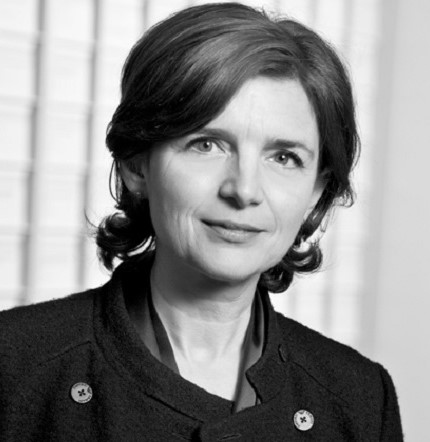
The 20th ESDN Workshop was entitled “SDGs and Human Rights” and brought together policymakers and experts from stakeholder groups from all over Europe to learn, exchange and share experiences on the following topics; SDG 5’s Impact on Human Rights of Women and Girls, Human Rights Defenders, and on Financing and Governance for Human Rights and the SDGs.
There was an overall agreement that achieving “sustainable development and leaving no one behind” will only be possible by “realizing the human rights of all”. Agenda 2030 is grounded on international human rights norms and dedicated two SDGs to fighting and combatting discrimination; SDG 5 on gender equality and SDG 10 on inequalities within and between countries. These SDGs are two sides of the same coin, as underlined by several speakers.
Micah Grzywnowicz, Senior Adviser, Human Rights and Sustainable Development at the Danish Institute for Human Rights presented two tools developed in order to pursue their mission on promoting and protecting human rights; the human rights explorer and the data guide to the SDGs.
These tools demonstrate that not only linkages exist, but they also provide great help and give extremely valuable input to both kinds of stakeholder. By combing the legal imperative of human rights with the political buy-in of the SDGs, these tools provide relevant arguments for the implementation of both agendas.
SDG 5 aims to achieve gender equality by ending all forms of discrimination, violence and any harmful practices against women and girls in the public and private spheres. It also calls for the full participation of women and equal opportunities for leadership at all levels of political and economic decision-making.
Anne Goedert, ambassador at large for Human Rights from the Ministry for Foreign Affairs in Luxembourg, emphasized women and girls as agents of change and exposed Luxembourg’s priorities in the Human Rights Council. She underlined that efforts for a feminist foreign policy have to be made at home and abroad.
Considering that data tells a story regarding what needs to be done, the need of disaggregated and intersectional data was emphasized, as well as data collected and provided by civil society.
During the panel dedicated to human rights defenders, the ESDN was privileged to welcome two human rights defenders; Debbie Stothard, founder of the alternative ASEAN Network on Burma, and Sor.Rattanamanee Polkla, executive coordinator at Community Resource Centre Foundation in Thailand. In their interventions, they explained how their work is seeking to support dignity, fairness, justice, and access to justice, especially for local communities. The participants heard the acknowledgment on the integration of both agendas; sustainable development and human rights, but also heard the hard and clear words on the violation of human rights, that law is not always justice and on the moving backwards in the implementation of the 2030 Agenda.
They underlined the effects of the three C’s; Covid, Climate change, Combat, and the intersectional nature of the work by the human right defenders. They highlighted that there is an absolute need to make the violation of human rights economically unprofitable.
The participants also had the honor to listen to Michel Forst as the world’s first Special Rapporteur on environmental defenders. He explained how he and his staff intend to support environmental defenders and ensure this approach of implementation by adhering to the principle of leaving no one behind.
He presented the Arhus Convention as an instrument for an international democracy and insisted on participation and access to justice as vital tools and principles for sustainable development. He also emphasized how the Special Rapporteur’s role is to take measures to protect any person experiencing or at imminent threat of penalization, persecution, or harassment for seeking to exercise their rights under the Aarhus Convention.
ESDN was lucky again to have youth on board also for this Workshop. Emma Merikanto, Youth Representative from Finland and Ellie Hutterli, UN Youth Delegate from Switzerland, presented youth’s analysis on forced migration due to climate change. They went to the core of the interconnectedness of climate change and human rights. They reminded everyone of the principle of common, but differentiated responsibilities, and the importance of dialogue at the political level and the right of young people to talk and to be heard regarding their concerns.
During the last panel of the Workshop, there was a discussion on action – governance and financing – on the national level to enable human rights on all levels. Isabelle Delas, CEO of the labelling agency LuxFlag, explained the importance of human rights based approaches in climate financing and the progress due to the European regulatory framework. She pointed out the lack of knowledge and competences of human resources and the need of training.
Cherryl Dentzer, from the ministry for Environment, Climate and Sustainable Development gave us insights into the governance set up in relation to the SDGs in Luxembourg and shared her expertise on Luxembourg’s International Climate Finance Strategy. She underlined how the strategy seeks to strengthen a human rights-based approach and gender responsiveness in climate finance. She also insisted on the need to mobilize the private sector in regards to including human rights in climate and SDG financing.
More information about the 20th ESDN Workshop can be found on the ESDN website.
Marguy Kohnen
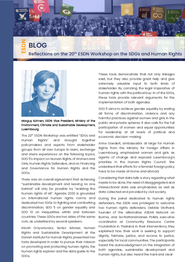 Reflections on the 20th ESDN Workshop on the SDGs and Human RightsDownload
Reflections on the 20th ESDN Workshop on the SDGs and Human RightsDownload
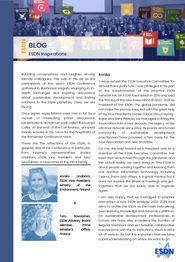 ESDN InspirationsDownload
ESDN InspirationsDownload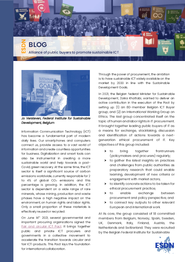 Alliance of public buyers to promote sustainable ICTDownload
Alliance of public buyers to promote sustainable ICTDownload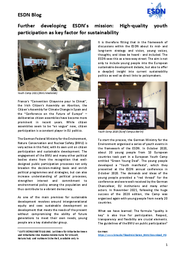 Further developing ESDN’s mission: High-quality youth participation as key factor for sustainabilityDownload
Further developing ESDN’s mission: High-quality youth participation as key factor for sustainabilityDownload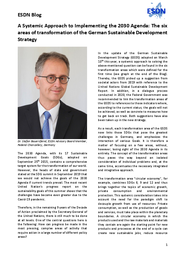 A Systemic Approach to Implementing the 2030 Agenda: The six areas of transformation of the German Sustainable Development StrategyDownload
A Systemic Approach to Implementing the 2030 Agenda: The six areas of transformation of the German Sustainable Development StrategyDownload The Belgian approach towards Business and Human RightsDownload
The Belgian approach towards Business and Human RightsDownload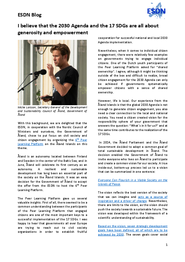 I believe thatthe2030Agenda and the 17 SDGs are all about generosity and empowermentDownload
I believe thatthe2030Agenda and the 17 SDGs are all about generosity and empowermentDownload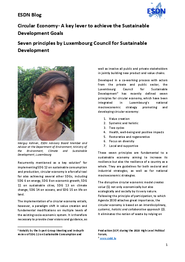 Circular Economy- A key lever to achieve the Sustainable Development Goals Seven principles by Luxembourg Council for Sustainable DevelopmentDownload
Circular Economy- A key lever to achieve the Sustainable Development Goals Seven principles by Luxembourg Council for Sustainable DevelopmentDownload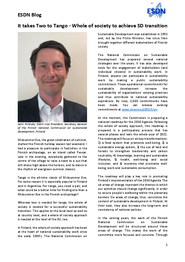 It takes Two to Tango - Whole of society to achieve SD transitionDownload
It takes Two to Tango - Whole of society to achieve SD transitionDownload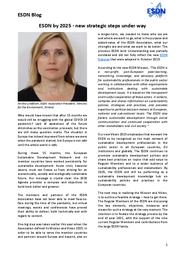 ESDN by 2025 - new strategic steps under wayDownload
ESDN by 2025 - new strategic steps under wayDownload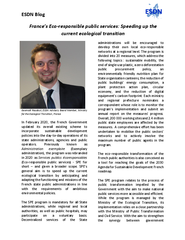 France’s Eco-responsible public services: Speeding up the current ecological transitionDownload
France’s Eco-responsible public services: Speeding up the current ecological transitionDownload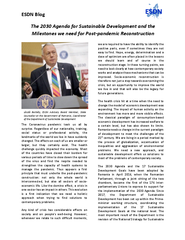 The 2030 Agenda for Sustainable Development and the Milestones we need for Post-pandemic ReconstructionDownload
The 2030 Agenda for Sustainable Development and the Milestones we need for Post-pandemic ReconstructionDownload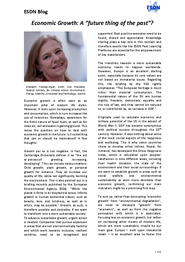 Economic Growth: A "future thing of the past?"Download
Economic Growth: A "future thing of the past?"Download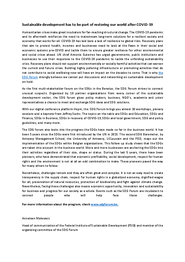 SD has to be part of restoring our world after COVID-19Download
SD has to be part of restoring our world after COVID-19Download The 2030 Agenda paves the way to the “new normal”Download
The 2030 Agenda paves the way to the “new normal”Download
